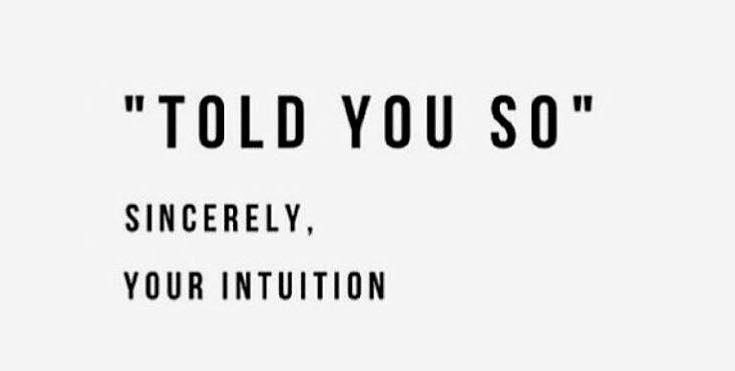Steve Jobs called it, “more powerful than intellect.” It has many names and many references: “follow your gut” “do what feels right” “trust your inner voice.” So many ways of saying the same thing: trust what your right-sided brain is telling you.
Best description I’ve read so far…
“According to many researchers, intuition is far more material than it seems. Hope College social psychologist David Myers, PhD, explains that the intuitive right brain is almost always “reading” your surroundings, even when your conscious left-brain is otherwise engaged. The body can register this information while the conscious mind remains blissfully unaware of what’s going on.”
Knowing Why vs Trusting
In the Information Era, we have a bit of a problem. We want to know facts and research. We live and thrive in the “prove it to me.” While this has brought great innovation and knowledge, it has also caused society to have a heavy weight on industry-specific knowledge or provable facts. Having the knowledge is obviously important, but it is not everything.
If I suspect someone is having a bad day or something is wrong, it’s not because I scientifically analyzed their behavior to identify and categorize their actions. It’s because part of my brain picked up on the micro expressions of sadness, the slight redness in the eyes, the uncomfortable tone of voice, or whatever else my conscious mind didn’t fully tap into. These things produce a sense of a situation outside of the overt and into the intangible realm of intuition.
In sales, trusting your instincts is a critical success factor.
Sales is a profession built on human relationships. It’s a profession highly founded in the ability to establish trust.
The value proposition in sales is both the factual value you present and the intuitive trust relationship you build with the customer. As a sales professional, you must be able to read the feelings of your customer to know when to push vs. when to back off and when to ask vs. when to tell.
So I’m sorry to break the news to you, but sales means embracing your allusive right brain data.
For all major purchases in my life, the best sales people are those who created a trust relationship. I did not view them as a sales person but rather as an advisor who maintained the same problem-solving goals that I had for myself.
The worst sales people I’ve met (and never purchased a thing from) gave me a sales pitch that sounded like it was straight from the corporate incentives program for that month’s product push. They weren’t trying to help me. They just wanted me to purchase the item they were told to sell.
More so, they tend to say things like, “come on! Trust me. You’ll love it.”
Maybe they sense my distrust, maybe they don’t. I’m going to bet that their intuition is screaming at them to say something else, but they ignore it and stick to the script.
“I Don’t Know Why I’m Right; I Just Know That I Am”
The key word is this conversation is trust. To trust the right side of the brain is actually a rather extraordinary thing. Your unconscious data is compiled by the right side and given to you as the effect and no concrete cause. You get the feeling about the situation but not the why or how that particular conclusion was created.
This phenomenon feels mystical, surreal, untrustworthy, even spiritual. It doesn’t feel logical, factual, provable, or accurate.
Deliberately Thinking About Things You Didn’t Deliberately Think About
I once took a test for fun. The test was identifying facial expressions…hundreds of them. I thought it seemed interesting and maybe insightful. I had no training on facial expressions, so I took the entire test on instincts. I answered each question based on what felt right.
To my surprise…I identified every facial expression accurately.
We are perpetually registering information that we are not aware of at a much faster rate than our cognitive thought can handle.
As you learn to tap into the feelings this unconscious data creates, your decision-making improves because you are accounting for both the conscious thought and unconscious thought. This increase and diversity of data gives a much larger, more accurate picture.
This isn’t very different from the feeling you get while driving when you suddenly feel like the car next to you is going to jump into your lane. There isn’t a blinker or lane closure to overtly communicate the pending change. Yet, we often predict the driving behavior accurately.
Like driving, the best sales people know when to adjust their course to avoid the pending crash.
So let your inner voice coach you a little..it’s smarter than you think!

